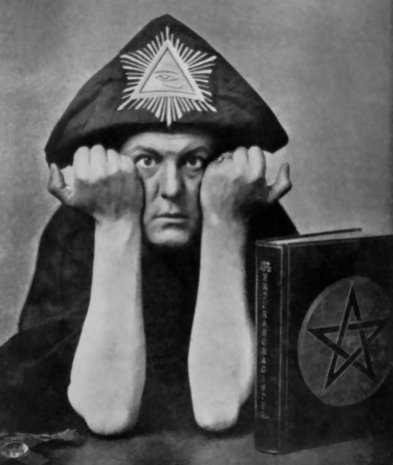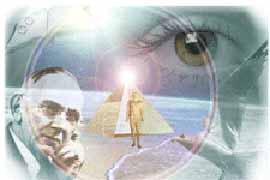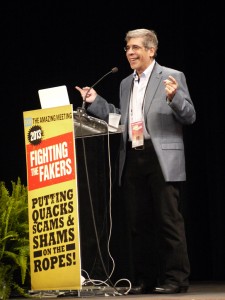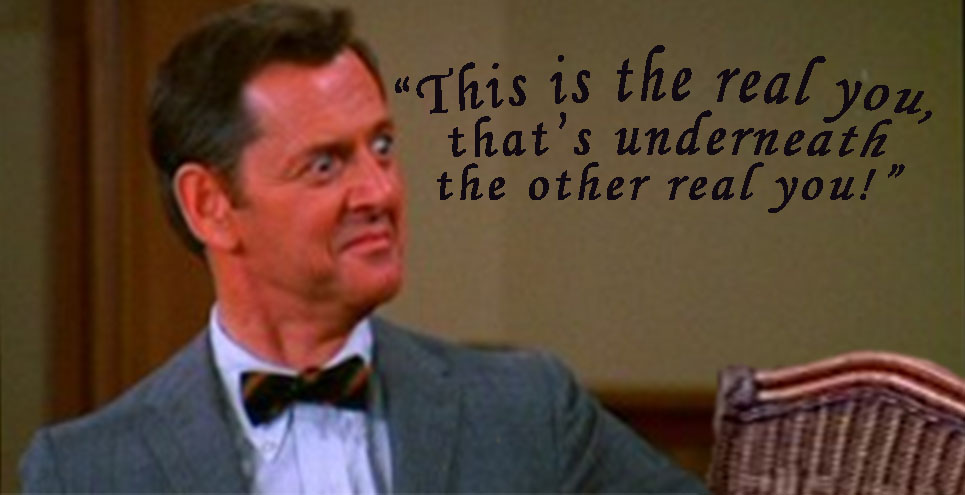I want to report some thoughts sparked by a recent rereading of a passage from Aleister Crowley’s novel Moonchild and hearing a lecture by Dr. Jerry Coyne on the topic of “The Illusion of Free Will.â€

“But she is a sublime genius, the greatest artist the world has ever seen.â€
“She has a genius,†distinguished Simon Iff. “Her dancing is a species of angelic possession, if I may coin a phrase. She comes off the stage from an interpretation of the subtlest and most spiritual music of Chopin or Tschaikowsky; and forthwith proceeds to scold, to wheedle, or to blackmail. Can you explain that reasonably by talking of ‘two sides to her character’? It is nonsense to do so. The only analogy is that of a noble thinker and his stupid, dishonest, and immoral secretary. The dictation is taken down correctly, and given to the world. The last person to be enlightened by it is the secretary himself! So, I take it, is the case with all genius; only in many cases the man is in more or less conscious harmony with his genius, and strives eternally to make himself a worthier instrument for his master’s touch. The clever man, so-called, the man of talent, shuts out his genius by setting up his conscious will as a positive entity. The true man of genius deliberately subordinates himself, reduces himself to a negative, and allows his genius to play through him as It will. We all know how stupid we are when we try to do things…. All this lies at the base of the Taoistic doctrine of non-action; the plan of doing everything by seeming to do nothing …
Nothing any man can do will improve that genius; but the genius needs his mind, and he can broaden that mind, fertilize it with knowledge of all kinds, improve its powers of expression; supply the genius, in short, with an orchestra instead of a tin whistle. All our little great men, our one-poem poets, our one-picture painters, have merely failed to perfect themselves as instruments. The Genius who wrote The Ancient Mariner is no less sublime than he who wrote The Tempest; but Coleridge had some incapacity to catch and express the thoughts of his genius – was ever such wooden stuff as his conscious work? – while Shakespeare had the knack of acquiring the knowledge necessary to the expression of every conceivable harmony, and his technique was sufficiently fluent to transcribe with ease.
The moment I first read that passage, some thirty years ago, sitting in a gas station in Mount Olive, North Carolina, waiting for my car to be fixed, I knew Crowley had hit the nail on the head. At least I knew he had described the creative process as I experience it. I had already noticed that elusive points became clear to me when I chanced to wake in the middle of the night. I had already noticed that new story ideas or project ideas would jump into my conscious mind as I took my morning shower, my head fresh from sleep. I remembered how on some days I would feel distracted, fog-brained, or out of sorts when sitting down to the keyboard—and wrote more fluently than when alert and clear-eyed! In all these cases, my conscious mind, my “trying†mind, was sort of off-line, or sitting on the sidelines, enabling my subconscious mind (Crowley’s “geniusâ€) to work unobstructed. In his fascinating book Lost Christianity, Jacob Needleman says something similar: that spiritual awakening comes most readily when physical or emotional discomfort momentarily throws us off balance, knocking our defenses away and putting us in a state of vulnerability.
Crowley’s character Simon Iff goes on to say, “How often do we see a writer gasp at his own work? ‘I never knew that,’ he cries, amazed, although only a minute previously he has written it down in plain English.’†I know that feeling. I feel often that I am simply receiving what I write. From whence? From “me,†i.e., my subconscious mind.

What I am describing is what I think is going on with so-called “channelers,†at least with those who are not simply frauds. They think they are loaning their mouths to this or that discarnate entity (Ramtha, Abraham, etc.) who then speaks through them to their audiences. I am guessing that the sincere ones are in fact putting their conscious minds in park and letting the genie of the subconscious out of its bottle. I believe the creative writer (or other artist), when he or she is “in the zone,†is doing essentially the same thing.
David Hume argued that there is no unifying ego at the center of our thoughts. They merely pass across the empty stage of our minds like actors in a play. Thoughts are pretty much tantamount to (passive) perceptions, though they do not, like the latter, seem to arise directly from the senses. I have to take this possibility very seriously. Likewise the Buddhist doctrine of anatta, “no self.†So often I seem to hear the arguments “I†spew out during a discussion, without planning them out, as if listening to another.
This is also why it makes perfect sense to me to say, with Deconstructive theorists, that the writer is but one more reader of the text “he†has authored. His conscious intention by no means controls the meaning of the text. The text is autonomous: it speaks for itself, the author’s opinions about it notwithstanding. I remember once hearing Stephen King remark that his book Carrie was about women’s rising awareness of their power. Plainly, he was wrong. He himself had expounded the subtext of William Peter Blatty’s novel/movie The Exorcist as the parent-frightening onset of puberty in their daughters. How could King not see the more-than-obvious: that his own Carrie was a retelling of the same lesson? His creative genius, of course, knew better.
Where does Jerry Coyne’s lecture come in? Among other points, Dr. Coyne appealed to tests that showed by an analysis of brain activities that the decision-making area of the brain signals a decision being made seconds before we become conscious of making a decision, implying that we are confusing what is really our experience of having (already, unconsciously) made a decision with the notion of making that decision in the moment of consciousness. Hidden factors deep below the level of consciousness have produced the decision, not a conscious process of deliberation. We are in fact receiving the decision from our subconscious minds. Sounds right! I’ve just been saying the same thing about ideas. But does that mean it’s not me? I posit that the immediate continuity between the unexperienced decision-making nexus and the awareness of the result is a matter of explaining our choices, not of explaining them away.
Compare it to sight: it seems to us to be instantaneous: an object is in front of us, and we see it, bang! But of course, there is much more to it: light strikes the optic nerve, the brain edits the image a bit, and we see a photoshopped version of what’s (presumably!) out there. Does this mean we aren’t seeing it? Hell, no. Even so, I think our decisions are genuinely our own, and not, say, those of another being programmed into us. The subconscious mind and the conscious mind are both equally “me.†(Once Felix Unger said to Oscar Madison, “This is the real you, that’s underneath the other real you!â€) The distinction is important in many ways, as Crowley, Freud, Jung, and a legion if others say. But so is the unity of continuity.

Dr. Coyne also suggested that determinism is perfectly compatible with deterrence policies, since the threat of execution may so impact the hearer that “he†will “decide†to drop his nefarious plans. Nor, Coyne says, is determinism incompatible with logical argumentation since a “compelling†argument “causes†the hearer to change his opinions in light of it. This seems fishy to me. Precisely how do effective arguments or threats “compel†assent? Hypnosis? Brain-washing? Mind-control? Or are not the changes of mind these arguments produce the product of the hearer weighing the implications and repercussions of planned crimes, evaluating the validity of arguments and the weight of evidence? Granted, these calculations may be taking place on a deeper level than we know, as when we instinctively toss an object into a trashcan across the room, and we hit the mark, whereas, as Crowley notes, if we had consciously calculated the necessary force, trajectory, etc., we would be less likely to make it. The “effortless†toss (the way clumsy ol’ me once astounded some neighborhood kids by sinking five baskets in a row) depends not on luck, but on a lightning-fast subconscious calculation on our part. The calculations are real, and they occur inside our skull, even though they are made on automatic pilot. But they are made. It is not the hand of fate.
Personally, Leibniz’s understanding of determinism and free will makes sense to me. Here is my version: Genetic and environmental factors create us and constitute us to an overwhelming extent. We cannot create ourselves. As Colonel Phillips says to Arnim Zola in Captain America: The First Avenger, “It’s just the hand you’ve been dealt.†Now see if you can win the game with it.
My likes and dislikes do not come out of nowhere. They were among the cards dealt me, whether earlier or later in life. But the fact remains that I do like what I like and dislike what I dislike. Various values are important to me, more so than others, perhaps than yours, and this, too, no doubt is a function of my genetic endowment and early life experiences. I did not choose them, nor did some deity. I do not feel betrayed, undermined, or disillusioned by this knowledge. I did not have the freedom to create myself because I wasn’t there to do the job. But I do have freedom now: the freedom to embrace the law of my own being, to be myself. And sometimes the way to do that is to get out of the way and receive whatever emerges.
So says Zarathustra.


4 Responses to Channeling Ourselves